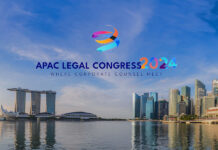Legal professionals assess the impact of Bombay High Court’s ruling on foreign law firm liaison offices
A recent court ruling on the issue of foreign law firm liaison offices has set the global legal community abuzz. In the case of Lawyers Collective v Bar Council of India et al, Bombay High Court considered the legality of licences granted by the Reserve Bank of India (RBI) to three law firms – Ashurst, White & Case and Chadbourne & Parke – in the mid ‘90s. The licences, which were granted under section 29 of the Foreign Exchange Regulation Act, 1973, permitted the firms to establish liaison offices in the country.
The petitioner, Lawyers Collective, a group of advocates formed to promote social causes, opposed the licences, arguing that the practise of law – even for non-litigious work – was governed by the Advocates Act of 1961.
Since the three foreign law firms were not licensed to practise law in India, Lawyers Collective contended that the RBI licences contravened the Advocates Act. It also argued that under the terms of the act, “practise of law” was deemed to include both litigation and transactional work, and did not simply apply to those authorized to appear in court.
You must be a
subscribersubscribersubscribersubscriber
to read this content, please
subscribesubscribesubscribesubscribe
today.
For group subscribers, please click here to access.
Interested in group subscription? Please contact us.


























